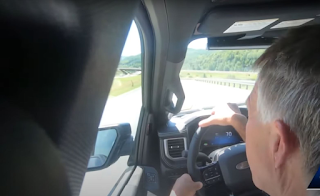RGGI Program Review Comments
These comments were submitted to the Regional Greenhouse Gas Initiative’s (RGGI) Third Program Review. Learn about RGGI, and submit your own comments at: https://www.rggi.org/program-overview-and-design/program-review Peter K. Duval Underhill, VT November 1, 2023 RGGI Program Review Comments Thank you for the opportunity to comment on elements of the Regional Greenhouse Gas Initiative’s (RGGI) Model Rule as part of the Third Program Review. I am a concerned Vermont resident and a former project analyst for an independent energy developer. I participated in the Vermont Public Service Board’s (now Public Utility Commission) Docket 5611, an investigation into environmental externalities. In 1992, I developed a proposal for a low-temperature district heating system for Burlington, VT, based on heat taken at the cooling tower of McNeil Generating Station. I support Partnership for Policy Integrity’s (PFPI) January 2022 comments. (1) The distortions in the carbon trading program have w

